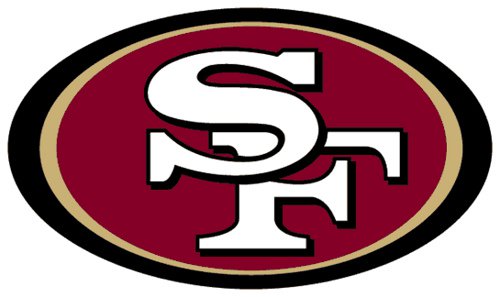As the 49ers walked away from the NFL draft Saturday evening, it is evident that what lingered in their minds after the season is not how they lost games but how they won them.
With a defense that played at high velocity. . . and an offense that crept and crawled.
An offense so easily constipated that it usually was forced to rely far more on field goals instead of touchdowns.
That motivated general manager Trent Baalke and coach Jim Harbaugh to spend the offseason, and this draft in particular, transforming one of the slowest units ever to grace a 21st-century conference championship game into one of the fastest in the league.
Though the 49ers selected seven players overall, the two that immediately matter are wide receiver A.J. Jenkins (first round) and running back LaMichael James (second round). They are in position to make an instant impact simply because they can outrun anybody who regularly lined up on offense last season.
Jenkins and James – along with the March 12 signing of free-agent wideout Randy Moss, conceivably the greatest deep threat in NFL history – give San Francisco the options to turn some of those truncated drives into touchdowns.
The exhausted left leg of kicker David Akers, still recuperating from a season that shattered numerous records for sheer activity, surely welcomes them to the team.
Akers was superb, kicking a record 44 field goals with a record 52 attempts; no other kicker attempted more than 41. His toe accounted for an NFL record 166 points.
But Akers was summoned far more often than is acceptable for any self-respecting offense, much less a hard-driving general manager and coach who came within an overtime loss of reaching the Super Bowl.
Though the San Francisco defense routinely operated at the same speed and intensity as Harbaugh, a salsa with soles ablaze, the offense tended to waltz and sputter. It scored 192 points (32 touchdowns, exactly two per game), accounting for barely half the team’s 380 total points.
The unit’s most dangerous deep threat was tight end Vernon Davis. He’s superb, yet we all know how poorly it reflects on the speed of the wideouts when your best downfield receiver is the 250-pound tight end.
You saw the limitations. Opponents saw the limitations. So did the G.M. and the coach.
“You can never have enough explosive players on your team,” Baalke said. “We needed to add some pieces to allow us to do some things on offense.”
Sure, Harbaugh likes physical, punishing offenses. But he also likes speed on the edges, and anywhere else he can get it. As a former quarterback, he thoroughly comprehends the problems this poses for any defense.
“We’re a big, strong football team,” Harbaugh said. “We don’t want to lose that. But we’ve added speed.”
Harbaugh added that this offseason was not a search for men who can run fast but about finding football players who are fast and productive.
Jenkins and James and Moss, all with sub-4.4 sprints on record, meet that requirement. The receivers can stretch the field from the flanks, while James should be perfect for the role of designated blur, lining up at running back or in the slot.
How could this not make life considerably easier for Davis? For wideout Michael Crabtree and running back Frank Gore? And, no, we did not forget Mario Manningham, another free-agent acquisition at wideout.
Yes, the 49ers added desired depth with offensive linemen Joe Looney (fourth round) and Jason Slowey (sixth). Linebacker Darius Fleming (fifth) and safety Trenton Robinson (sixth) likely will be asked to contribute on special teams. Their final pick, outside linebacker Cam Johnson (seventh), might be good enough to make the team.
But the primary purpose of this draft, and the personnel moves of this offseason, was to fill the vast speed/quickness void on offense. The 49ers have succeeded, giving offensive coordinator Greg Roman a more complete arsenal.
Moss, 35, is worth the risk even though he alone would have been a long shot to solve the problem. Add the fleet youngsters – Stanford wideout Chris Owusu, another sprinter, will be added as an undrafted free agent – and the 49ers have a respectable track team.
The team that returns all 11 starters from a fantastic defense now has the tools for a truly explosive offense, with quick-strike capability, resulting in fairer means by which to measure quarterback Alex Smith.
A franchise coming off a 13-3 season has the goods for appreciable improvement.
Every front office sets the offseason goal of using free agency and the draft to address its most pressing needs. The 49ers went beyond that.
They didn’t merely address their most glaring weakness. They attacked it with a vengeance.








